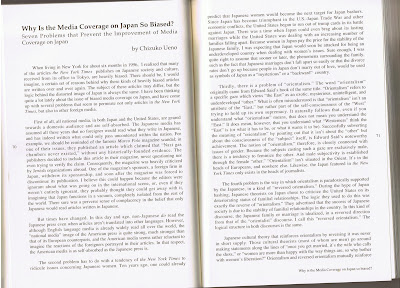Perspective | Postmodernism didn’t cause Trump. It explains him. https://t.co/fHPmOEAYe2 アジではなくて説明だったというのは疑問
— mozu (@mozumozumozu) 2018年9月3日
Postmodernism didn’t cause Trump. It explains him.
By Aaron Hanlon
Aaron Hanlon is an assistant professor of English at Colby College.
August 31
Postmodern theory may be the most loathed concept ever to have emerged from academia. Developed within literature and philosophy departments in the 1970s, it supposedly told us that facts were debatable, that individual perspectives mattered most, that shared meaning was an illusion and that universal truth was a myth.
Michiko Kakutani, the cultural critic and author of “The Death of Truth,” blames the relativism that facilitated Trump’s rise on “academics promoting the gospel of postmodernism.” Lamenting the state of American politics under Trump, philosopher Daniel Dennett said in an interview last year, “I think what the postmodernists did was truly evil.” And when Rudy Giuliani recently told NBC’s Chuck Todd that “truth isn’t truth,” Vox claimed that it wasn’t “the first time Trump’s legal team has played postmodernist and hinted that it might be too hard to discern the truth because it’s all relative anyway.”
These challenges to postmodern theory did identify an important crisis: Losing a shared vocabulary for the world’s problems, for the way we relate to one another and for current events may be the greatest threat to American society. What did it mean that the pro-life movement could fashion itself as an avatar of women’s empowerment or that a white woman like Rachel Dolezal could simply declare that she is black?
Yet these problems were exactly what worried postmodern theorists. Their project was an attempt to understand why people had begun to interpret material facts so differently. And while their answers may not have been the final word, we might still learn from them , if we weren’t so attached to a misunderstanding of what they had to say.
Subsequently, “postmodernism” would come to describe a range of theories about the character of language and of knowledge in the world. Drawing on developments in fields from linguistics to cybernetics, Jacques Derrida’s concept of “deconstruction” sought to understand language as a system capable of constantly hiding and deferring meaning, rather than a simple conduit for conveying it. Another thinker, Jean Baudrillard, developed the concept of the “simulacrum,” a copy without an original, that leads to the “hyperreal,” a collection of signs or images purporting to represent something that actually exists (such as photos of wartime combat) but ultimately portraying a wild distortion not drawn from reality. Each of these concepts was an attempt to identify trends that, according to postmodern theorists, were changing our understanding of language, truth and knowledge.
Kakutani recently wrote in the Guardian: “Relativism has been ascendant since the culture wars began in the 1960s. Back then, it was embraced by the New Left, who were eager to expose the biases of western, bourgeois, male-dominated thinking; and by academics promoting the gospel of postmodernism, which argued that there are no universal truths, only smaller personal truths — perceptions shaped by the cultural and social forces of one’s day. Since then, relativistic arguments have been hijacked by the populist right.”
If you’re going to claim that Trumpism and alt-right relativism are consequences of the academic left’s supposition about what was happening, you must demonstrate a causal link. But commentators looking to trace these roots play so fast and loose with causality that they could easily be called postmodernist themselves.
It is certainly correct that today’s populist right employs relativistic arguments: For example, “identity politics” is bad when embraced by people of color, but “identitarianism” — white-nationalist identity politics — is good and necessary for white “survival.” But simply because this happens after postmodernism doesn’t mean it happens because of postmodernism, as Kakutani suggests.
It’s clear that current trends long predate our theories of postmodernism. Kakutani opens her Guardian essay with a quote from Hannah Arendt’s 1951 “The Origins of Totalitarianism”: “The ideal subject of totalitarian rule is not the convinced Nazi or the convinced communist, but people for whom the distinction between fact and fiction . . . and the distinction between true and false . . . no longer exist.” But Arendt herself thought political dissimulation was much older. “The deliberate falsehood and the outright lie used as legitimate means to achieve political ends,” writes Arendt in her 1971 essay “Lying in Politics ,” “have been with us since the beginning of recorded history.”
It’s one thing to help people understand that facts don’t emerge in a vacuum or that grand narratives aren’t always accurate explanations for the way things are. But it’s another thing to suggest that such ideas have encouraged society at large to reject scientific fact as “just another opinion.”
It’s easy to scoff at, for example, Baudrillard’s book “The Gulf War Did Not Take Place,” writing it off as just another instance of postmodernist claptrap, the denial of an objective truth so obvious as “the Gulf War happened.” But if we bother to understand Baudrillard’s thesis — that our impressions of the conflict have been warped by media framing and agitprop — it’s clear that the real enemy of truth is not postmodernism but propaganda, the active distortion of truth for political purposes. Trumpism practices this form of distortion on a daily basis. The postmodernist theorists we vilify did not cause this; they’ve actually given us a framework to understand precisely how falsehood can masquerade as truth
おもしろい記事だね。
時間的順序としては、
ポストモダニズム ≒ 相対主義 →
トランプ主義 ≒ 真実は真実ではない、俺様のいうことが真実だ、主義
なんだけど、前者が原因で、後者が結果だ、という論証がない。
カクタニ氏は、全体主義のわなに一番ひっかかりやすいのは、、事実と虚構、真実と偽りの区別がつかなくった人たちだ、というアーレントの言葉を引用して、ポモ→トランプの因果関係を説明した気になっているが、アーレントにいわせれば、歴史の始まりとともに、真っ赤な嘘でも、政治的目標を実現するための正当な手段として使われてきたのであって、ポモの後にはじまったわけではない、と。
ボードリヤールは「湾岸戦争は起きなかった」と挑発的なことを言ったがその真意は、紛争の印象は、メディアの枠組みや政治的宣伝によって歪められるものである、という意味であって、真理・真相の敵はポストモダニズムではなく、、政治的宣伝=プロパガンダのほうであり、それが、政治的目標のために真実を歪めているのである、と。
トランプは毎日のように、真実を歪めて嘘をついているが、それはポストモダニズムのせいではないのだ、と。むしろ、ポモは、偽りがいかにして、真実を装うかを理解する枠組みを提供してくれているのである、と。
これはこれで面白い理解。
ただ、ポモを当時、このように理解していた人は少ないだろうね。
「真実を装う偽り」、といえば、客観的な真実がある、という前提だが、ポストモダニズムはまさに、そうした客観的な真実、それに対応する事実の存在を否定したものとして理解されていた。













